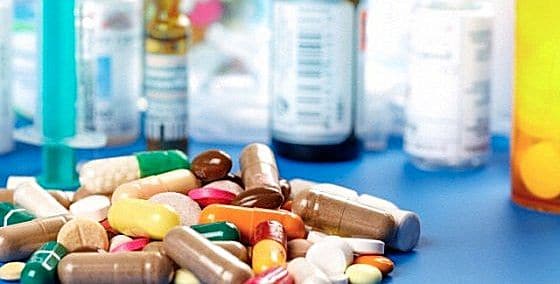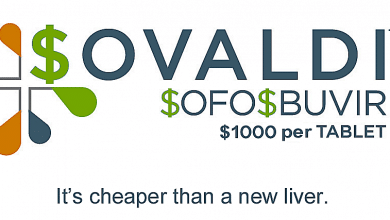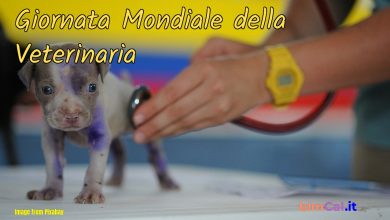
 Rome, 3 October - Treatments that last seven days and packs of drugs which, instead, provide for a number of pills for ten days of therapy. Or, conversely, antibiotics in combination that provide a cycle of at least seven days of treatment and packs that contain enough for only six, with the inevitable consequence of forcing the purchase of a second box. Which will inevitably remain largely unused in the medicine cabinet (with the risk of subsequent improper use of the drug) or will end up in the trash.
Rome, 3 October - Treatments that last seven days and packs of drugs which, instead, provide for a number of pills for ten days of therapy. Or, conversely, antibiotics in combination that provide a cycle of at least seven days of treatment and packs that contain enough for only six, with the inevitable consequence of forcing the purchase of a second box. Which will inevitably remain largely unused in the medicine cabinet (with the risk of subsequent improper use of the drug) or will end up in the trash.
That of the optimal packaging of drugs for a cycle of therapy is an old and never resolved question to which - probably - less attention is paid than it deserves.
A new spotlight on the subject has been turned on in recent days by a major newspaper, The print of Turin, with an article signed by Paolo Russo which, already in its incipit, provides the essential coordinates of the phenomenon: one drug out of ten ends up in the trash because the boxes contain more or fewer pills than are needed to complete the therapy. A waste that alone costs us 1.6 billion a year. And which, added to others – such as golden consultancies which, whether they are needed or not, cost another 780 million, canteen and cleaning services paid for at least a billion more than they should cost, project financing to build hospitals that require disbursements equivalent to those for the construction of the hospital itself, unnecessary legal costs for proceedings against doctors and hospitals which then end up archived - leads to a waste of 3.5 billion a year, according to what emerges from a union study of Anaao-young hospital doctors.
A figure that sounds even more serious and shameful, at a time when in the next budget session it will be difficult to defend the funding levels of the 2017 Fsn, with the risk that the expected two billion more that should bring it to 113 billion will end to be less.
The print, on the subject of far from optimal drug packaging, which has been discussed for some time without however being resolved, raises a series of justified questions: “Why isn't it deleted? Is it just waste or also fraud? Is one drug thrown away out of ten purchased worth it for anyone? Does it engage the mechanism whereby you throw away the “leftovers” of the first pack and buy a second whole pack?”
The problem of the 'wrong' packaging of medicines, precisely because of its (at least in theory) easy solution, appears in fact as particularly odious: there is not a single reason, at least among the confessable ones, to allow that because of boxes with a number of pills, tablets or vials "adjusted" with respect to the needs imposed by the cycle of therapy the 10% of medicines is wasted (the estimate is of the prestigious British Medical Journal).
Perplexities (and with them anger) rise if one thinks of all the regulations which, in the last ten years of laws and economic maneuvers carried out with the ax in hand, have been passed to push the industry to produce "optimal packs" of medicines, made on the basis of the duration of a therapy. Norms which – he goes to know why and through whose fault – have evidently not produced the desired results, at least judging by the examples brought to The print as deputy national secretary Fimmg Pierluigi Bartoletti.
 “Almost all antibiotics are sold in suboptimal packaging” – in fact explains the manager of the union of family doctors. “Amoxicillin with clavulanic acid, the known Augmentin, perhaps the most used antibiotic and the one most frequently given to children, is marketed in blister packs of 12 tablets, which are enough for 6 days of therapy, when at least seven days are needed". The result, explains Bartoletti, is that “the patient has to buy a second box to consume perhaps only two tablets, while the other 10 end up in the locker”. And from this then to waste disposal. Or worse until "when the patient, having them at hand, does not decide at the first opportunity to use the pills that remain for only 5 days, which are not used to cure but to create the notorious resistance to antibiotics by the new super-bacteria".
“Almost all antibiotics are sold in suboptimal packaging” – in fact explains the manager of the union of family doctors. “Amoxicillin with clavulanic acid, the known Augmentin, perhaps the most used antibiotic and the one most frequently given to children, is marketed in blister packs of 12 tablets, which are enough for 6 days of therapy, when at least seven days are needed". The result, explains Bartoletti, is that “the patient has to buy a second box to consume perhaps only two tablets, while the other 10 end up in the locker”. And from this then to waste disposal. Or worse until "when the patient, having them at hand, does not decide at the first opportunity to use the pills that remain for only 5 days, which are not used to cure but to create the notorious resistance to antibiotics by the new super-bacteria".
Another example is ciprofloxacin, an antibiotic that is also widely used, sold in boxes of 5 tablets instead of seven. Which makes it necessary to purchase a second pack which however automatically entails the waste of the remaining 3 pills.
"A similar waste occurs for antihypertensives for which the packs are usually 28 tablets" adds Bartoletti. “Too few for the therapy of a chronic patient, too many for those who only have to test the functioning of the drug, perhaps for only 10 or 15 days”.
 And in the meantime, from box to box, 1.6 billion euros are going up in smoke, at least according to the results of the study by young Anaao doctors. A waste that the NHS really cannot afford. And which, perhaps, deserves - given that the rules alone do not seem to be enough - a strong and high-intensity campaign of opinion aimed at crushing it Campaign that should be concerned with promoting and interpreting, first of all, the "health doctors" of first point of reference for citizens, i.e. doctors and pharmacists.
And in the meantime, from box to box, 1.6 billion euros are going up in smoke, at least according to the results of the study by young Anaao doctors. A waste that the NHS really cannot afford. And which, perhaps, deserves - given that the rules alone do not seem to be enough - a strong and high-intensity campaign of opinion aimed at crushing it Campaign that should be concerned with promoting and interpreting, first of all, the "health doctors" of first point of reference for citizens, i.e. doctors and pharmacists.
Who, due to their role and their function, should do everything to "protect" their clients and the NHS all from anomalies without justification, even forcing the institutions - with any lawful form of initiatives and persuasive pressures - to intervene to prevent behaviors from continuing to find space within the confines of the Italian health system which to some, in their substance, are very reminiscent of the opportunism of looters. No offense to anyone, of course. Jackals included.
Related news: Drugs, the packs are too big. Healthcare wastes 1.6 billion every year





